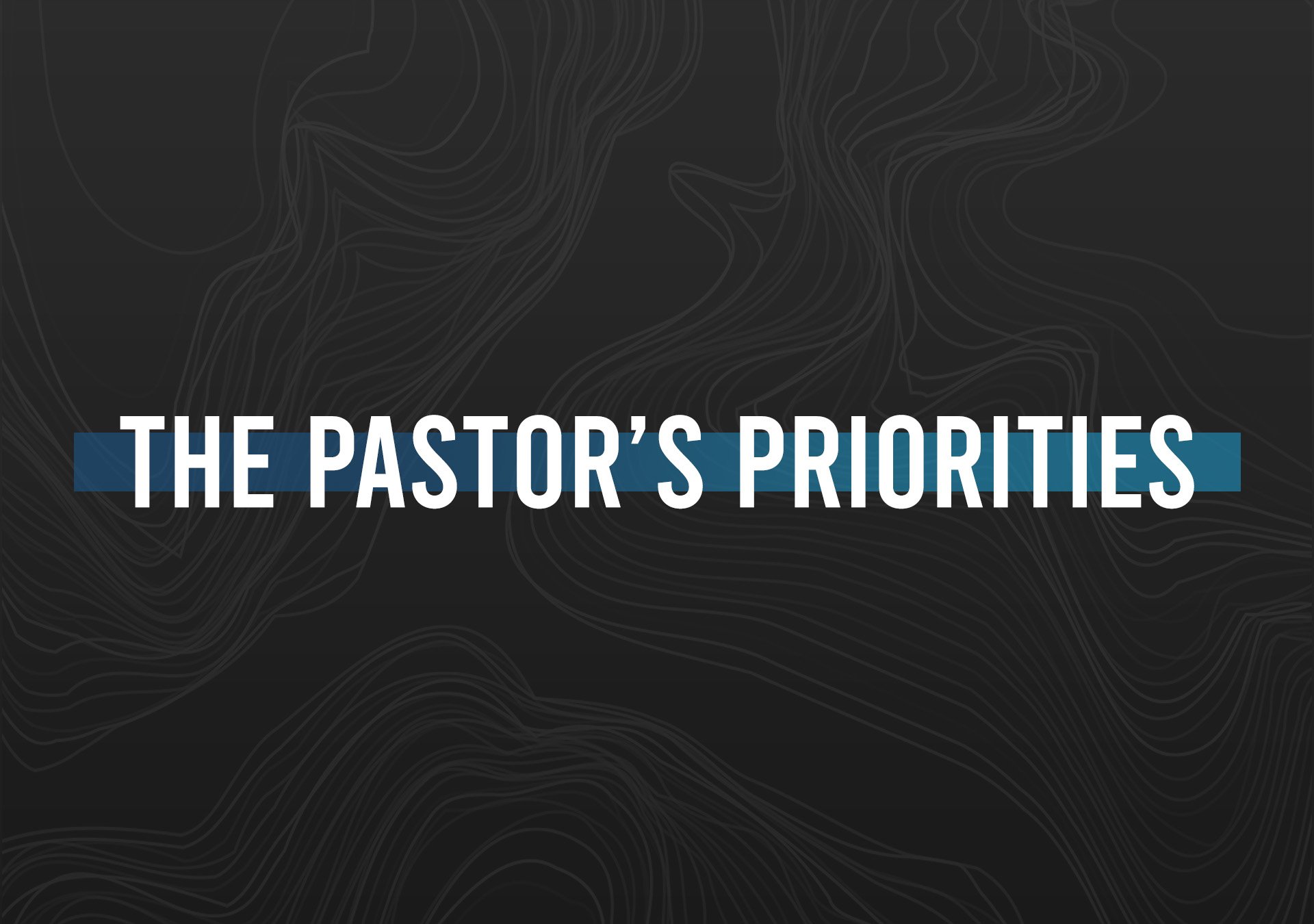Norman Nakanishi
Founding and Expansion Pastor,
Pearlside Church

Founding and Expansion Pastor,
Pearlside Church

Most of the time, planting, leading, growing and pastoring a church is first associated with crafting quality sermons and preaching God’s Word. While the pulpit is no doubt a high priority, effective church leadership involves much more than that. “If I preach they will come” is not a catch all. Here are other key areas that should occupy a prime place in a pastor’s life and schedule.
SELF LEADERSHIP
Leadership begins with the effective leadership of one's self.
This entails taking time to cultivate a healthy soul, spiritual inner life, and physical body. Those realms are connected and have an overlapping effect on the quality of one's leadership.
A lifestyle of prayer, feeding on God’s Word, observing weekly sabbaths, taking vacations, respecting margin, cultivating accountable relationships and caring for one’s physical health should be non negotiables. The journey of leadership is a marathon, not a sprint; a walk and not a race. The aim is to start, peak and finish well.
Most leaders fail or flame out because the demands of outward public ministry lead to a neglect of their private inner life.
Paul told Timothy to take heed first to himself before tending to the matters of ministry (1 Timothy 4:16).
The work done for God cannot supplant the walk one has with God.
FAMILY LEADERSHIP
The next most important area of leadership involves leading one's marriage and family.
Scripture establishes that leaders cannot lead the local church well when they cannot lead their own family well (1 Timothy 3:2-5).
Sound leadership in God's house begins with sound leadership in one's own house. We only need remember how the enemy attacked man's first marriage (Adam and Eve disobeyed God) and their first two children (Cain murdered Abel).
Cultivating healthy relationships with spouse and children cannot be sacrificed for the sake of ministry. The home is the foundation.
DEVELOPING LEADERS
Jesus said that the while the harvest would be plentiful, the laborers would be few. He said to pray for God to provide those workers (Luke 11:2).
Developing those workers into leaders should be a major priority.
The greater the number of leaders, the greater the growth of the church (Acts 6:1-7)
The greater the number of leaders, the greater the health of the church because the workload is shared and burnout is negated (Exodus 18).
Avoid the temptation to be a doer; Embrace the practice of being an equipper (Ephesians 4:11-12).
Do not get caught up in the vortex of tasks, putting out fires and managing logistics. Activate others to serve in those areas being sure to equip them while expressing ongoing affirmation and appreciation.
REACHING THE LOST/MAKING DISCIPLES
The Great Commission constitutes the big “why” for the very existence of churches in the first place.
The making of disciples necessitates the planting of churches, and discipleship always starts with reaching the lost.
The lead pastor and key leaders should model this by being in the harvest field while believing for divine connections to pre-believers. Jesus and Paul modeled this well.
People do what their leaders do not what their leaders say. Leading by example will trigger a transfer of values and over time a momentum for the harvest.
The goal is for everyone to share the gospel and make disciples because this was Jesus’ charge and commission (Matthew 28:19-20 and Mark 16:15-20).
Establish a clear and simple discipleship path for new people to be equipped and assimilated into the culture of the church family. It is important immediately for people to know their next steps with absolute clarity.
SHEPHERDING STRATEGICALLY
Hands on care is expected of any pastor. At the start of a church the lead pastor does much of that and should cultivate the heart of a shepherd.
However, as time goes on, the key is to be selective and handle just the serious matters or leadership will suffer and being a full time care giver will take over. The church will stall out unless others become involved because there will be an expectation for the pastor to do it all.
Select, train, and commission others to help with pastoral care as soon as possible whether it’s small group leaders, elders, or a special team of care ministry volunteers. Champion and endorse pastoral care as a team ministry that combines both vocational clergy and the regular laity.
BEING A LIFE LONG LEARNER
Commit to being continually educated because knowledge keeps expanding, trends keep evolving and the world keeps changing.
Consider continuing education through seminaries, colleges, training institutes, special courses, webinars and study sabbaticals.
Read, listen to podcasts, attend conferences, seminars and roundtables.
Visit other churches and meet with other pastors and leaders both inside and outside of the church environment to learn. Keep broadening leadership purviews and perspectives.
The quickest way to irrelevance is to camp on the knowledge of yesterday's laurels. Continual growth is a deliberate discipline.